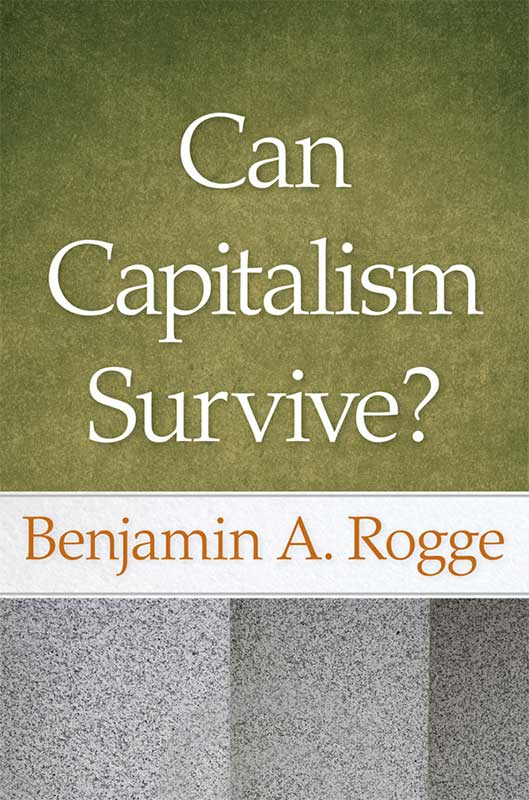Can Capitalism Survive?
By Benjamin A. Rogge
One of the signs of advancing age in the American college professor is a tendency for him to write less and publish more. This seeming paradox is easily explained by the phenomenon of
Collected Works, that is, by what on television would be described as reruns. As in television, no great public outcry is needed to bring forth the reruns; a question from his wife, a polite suggestion from a colleague, and the cut-and-paste operation is under way.I have put together here what I believe to be the best of the rather meager output of my professional career up to this point. For reasons (mostly financial) that always seemed adequate at the moment, I have been more of a speechmaker than a writer. Thus, you will find that many of the pieces in this collection are but speeches put down on paper…. [From the Foreword]
First Pub. Date
1979
Publisher
Indianapolis, IN: Liberty Fund, Inc. Liberty Fund, Inc.
Pub. Date
1979
Comments
Collected essays.
Copyright
The text of this edition is under copyright. Picture of Benjamin Rogge: file photo, courtesy of Liberty Fund, Inc.
- Foreword
- Part I, Introduction
- Part I, Chapter 1, Can Capitalism Survive
- Part II, Introduction
- Part II, Chapter 1, The Case for Economic Freedom
- Part II, Chapter 2, The Libertarian Philosophy
- Part II, Chapter 3, Who is to Blame
- Part II, Chapter 4, Paradise in Posey County
- Part III, Introduction
- Part III, Chapter 1, Adam Smith, 1776-1976
- Part III, Chapter 2, Christian Economics: Myth or Reality
- Part III, Chapter 3, College Economics: Is It Subversive of Capitalism
- Part IV, Introduction
- Part IV, Chapter 1, Profits
- Part IV, Chapter 2, The Businessman
- Part V, Introduction
- Part V, Chapter 1, The Labor Monopoly
- Part VI, Introduction
- Part VI, Chapter 1, The Long-Run Economic Outlook
- Part VI, Chapter 2, Alleged Causes of Inflation, Corporate Monopolies
- Part VII, Introduction
- Part VII, Chapter 1, The Problems of Cities
- Part VIII, Introduction
- Part VIII, Chapter 1, Financing Higher Education in the United States
- Part VIII, Chapter 2, The Promise of the College
- Part IX, Introduction
- Part IX, Chapter 1, The Businessman and the Defense of Capitalism
- Part IX, Chapter 2, Reflections on the Election of 1964
- Part IX, Chapter 3, The Foundation for Economic Education, Success or Failure
Part V, Introduction
Part V
ON LABOR MARKETS
This paper was presented at a meeting of the Midwest Economics Association in 1957. It was later printed in
Business Topics, a journal published by the School of Business at Michigan State University. As you will see, its message was not such as to bring me invitations to speak at trade union conventions—or at meetings of those pushing for right-to-work laws either.
The Wealth of Nations (New York: Modern Library, 1937), p. 625.
Psychology in Industry (New York: Houghton Mifflin, 1955), p. 6.
Industrial Psychology (New York: Prentice-Hall, 1952), p. 362.
Labor Institutions and Economics (New York: Rinehart & Co., 1956), pp. 594-95.
The Impact of the Union, ed. David McCord Wright (New York: Kelley and Millman, 1956), p. 364.
Legal Immunities of Labor Unions (Washington, D.C.: American Enterprise Association, 1957); Sylvester Petro,
The Labor Policy of the Free Society (New York: Ronald Press, 1957).
The Economic Analysis of Labor Union Power (Washington, D.C.: American Enterprise Association, 1958), pp. 41-42.
The Wealth of Nations (New York: Modern Library, 1937), p. 128.
Part VI

